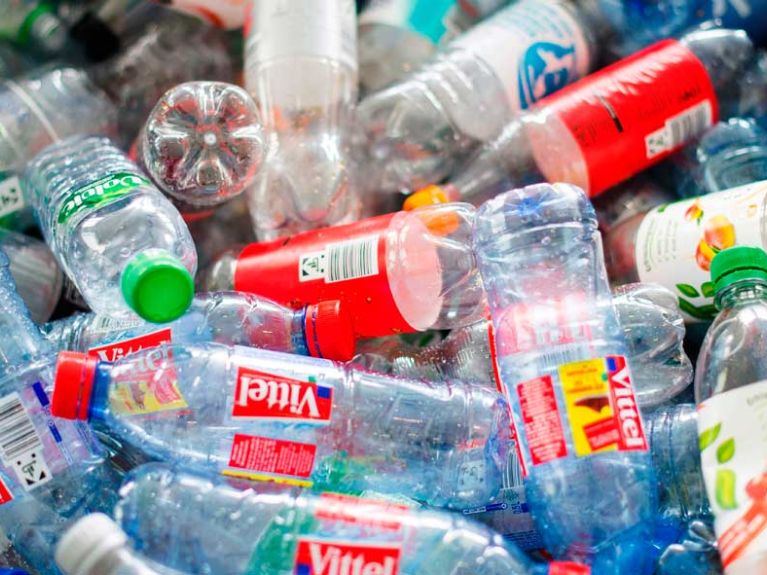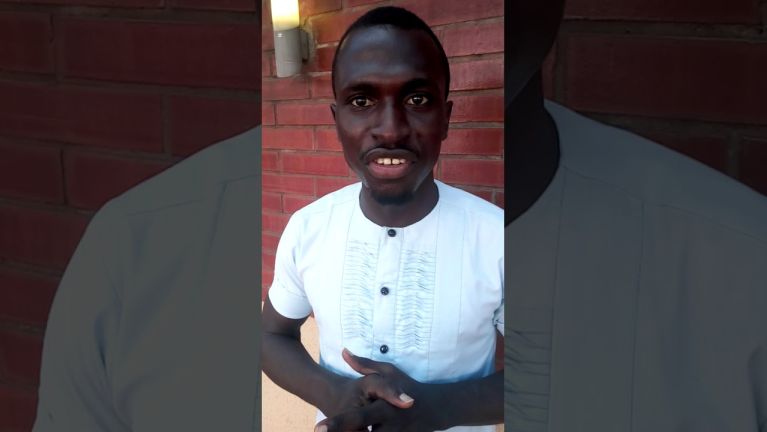Plastic Recycling Collection, Nigeria
Plastic recycling collection and distribution can generally be termed the DIAMOND IN THE ROUGH.

Project name: Plastic Recycling Collection and Distribution
Project location: Lagos, Nigeria
Dieses YouTube-Video kann in einem neuen Tab abgespielt werden
YouTube öffnenThird party content
We use YouTube to embed content that may collect data about your activity. Please review the details and accept the service to see this content.
Open consent formProject description:
PLASTIC RECYCLING COLLECTION AND DISTRIBUTION PROJECT PROPOSAL
1. AN OUTLINE OF THE PROBLEMS THAT THE ABOVE SUBJECT ADDRESSES.
a. Landfill Waste Related Environmental Hazards
b. Waste of Natural Resources
c. Deforestation
d. Increase In Energy Consumption
e. Increase In Pollution
f. Global Warming Related Problems
2. EXPLANATION OF THE ABOVE SUBJECT, HOW THE ABOVE SUBJECT RELATES TO SUSTAINABLE DEVELOPMENT GOALS, AND HOW IT WILL WORK; CLEAR DETAILS ABOUT HOW THE ABOVE SUBJECT WILL HELP TO SOLVE THE PROBLEMS OUTLINED IN [1], AND HOW THE SOLUTION WILL PROVIDE BUSINESS AND SOCIAL AND/OR ENVIRONMENTAL VALUES.
Plastic recycling collection and distribution can generally be termed the DIAMOND IN THE ROUGH that hasn’t been found by the majority. While a couple of people have realized the potential plastic recycling collection and distribution have, many still remain unaware. This business came on top in the recycling businesses because of its extreme and proven viability in Nigeria and many other parts of the world.
Plastic recycling collection and distribution relates to the sustainable development goals in all quarters because the benefits obtainable in the business shows that those goals can be achieved.
The benefits goes thus:
a. The universal call to action to end poverty is been heeded in the sense that families of the workers that will be involved in all the operations of the business from stage A to stage Z will have food on their table and will be able to go to school.
b. The planet will be a safe haven for all living things in the sense that; [i] landfill wastes pollution, poisoning and many health problems will be put in check [ii] there will be no exploitation of natural resources [iii] the economy won’t have to pay for resources that are growing scarce in the country and world at large.
c. There will be decrease in energy consumption used in mining raw materials and processing them.
The above subject will help to solve the problems outlined in [1] and profer business and social and/or environmental values in the following ways;
a. By utilizing plastic waste products in a constructive way, we can slowly decrease the size of our landfills and reduce the strain on our environment. The benefits of plastic recycling collection and distribution are that it helps to keep pollution, poisoning and many health problems in check, provides job and business opportunities to those who will want to get involved in the plastic recycling collection and distribution business.
b. Resources required to make plastics are been exploited on a daily basis. Utilizing plastic waste products in a constructive way allows plastic wastes to be used over and over again so that new resources do not have to be exploited. Throwing away the wastes creates some six to seven jobs at best while recycling the wastes can help to create close to thirty jobs.
c. A strong economy is one that is efficient in nature. What drags it down is having to pay for resources that are growing scarce in the country and world at large. Every bit of plastic recycling collection and distribution counts when the economy does not have to pay for planting more forests and shipping them into the city for use.
d. The recycling industry saves energy which results in less greenhouse gas emissions, which are primarily responsible for increase in global warming.
Use of renewable energy sources like solar, wind, geothermal is on rise which has helped to conserve ENERGY, reduce POLLUTION, and create more jobs and businesses.
3. A BUSINESS MODEL OF THE SOLUTION IN [2]
On an average, over one thousand plastic wastes are dropped on the floor at frequented bus stops, and event and occasion centres in Lagos, Nigeria, every 6 hours. With the large volume of plastic wastes been piled up in such areas, cleaning up these environments on a daily basis would be a full scale business for me.
Below is the plastic recycling business plan with steps to fully setting up a profitable plastic recycling collection and distribution business:
Step 1. The type of plastic bottles to be collected.
Polyethylene Terepthalate [PET] is the answer. These are the common plastic bottles that we see on a daily basis. Examples are soda and water bottles like the coca-cola plastic bottles, pepsi plastic bottles, and most bottled waters.
Plastic recycled by-products can be used to make life jackets, bags, furniture, car bumpers, and of course, plastic bottles.
Step 2. Places to find the PET bottles.
a. Event and occasion centres- After every occasion and event, lots of plastic bottles are always littered around. Good deal will be made with cleaners, security staff, or event organizers to get their plastic wastes for free or at a small rate.
b. Recycle bins will be strategically placed in households, communities and estates where PET bottle wastes will be gathered at no or small cost.
c. With thousands of restaurants and fast-foods scattered all across the country, there is an abundance of plastic bottle wastes to be collected daily. I will strike deal with the cleaners and they would store and sell the plastic bottle wastes to me at a small fee.
Step 3. Sorting, Baling, Grinding, and Transport to the recycling factory.
a. If I sort and clean the plastic bottles before delivering, the amount I will be paid goes a little higher.
b. If after sorting, I use a baling or cutting machine to compress the plastic bottle wastes to smaller sizes, I will be paid even more for the recyclables delivered to the recycler for sale.
c. If after baling, I use a grinding machine to grind the baled plastics, my selling price goes higher.
Lets say I gathered one ton[1000kg] of plastic bottle wastes and prepared it for sale to a recycling factory, here would be my return on investment per level:
a. With sorting could be around 25 or 30 naira per kg which would amount to about 25,000 or 30,000 naira [$83.4 to $100] per each ton [1000kg]. If I sell ten tons [10,000kg], my revenue would be between 250,000 to 300,000 naira [$834 to $1000]. At this stage of plastic recycling collection and sale, what would determine huge profits would be how I handle expenses; especially on transportation.
b. If after sorting, I bale or grind, I could be paid between 65 to 70 naira per kg which could amount to 65,000 to 70,000 naira per each ton [1000kg]. Baling or grinding means if I deliver 10 tons [10,000kg] a week, I did make 650,000 to 700,000. From all indications, baling and/or grinding is the right way to go for me. The cost of a baling and grinding machine is between $3000 to $8000.
c. After I have baled and/or ground, my final products will be transported to the recycler for sale using the cheapest and most effective transporter.
N.B: THE EXCHANGE RATE USED IS AT $1 TO 300 NAIRA.
I will also register with local waste management and recycling organizations like LAWMA to receive special benefits, and to also ensure am not violating any local laws.
Goal and purpose of the project:
1) To eventually grow the business into a plastic recycling factory with sophisticated and efficient plastic recycling machines
2) To become the best and most efficient plastic recycling firm in the world and empower people in the bid of poverty alleviation.
3) To make the world a safe haven for living things devoid of environmental pollution and prevent the depletion of natural resources.
Motivation of the applicant / applicant team:
My motivation is my intense passion to deliver sustainable results in my entrepreneurial pursuits and its objectives and goals.
Use of prize money:
To establish and grow the business into a full blown plastic recycling firm.
